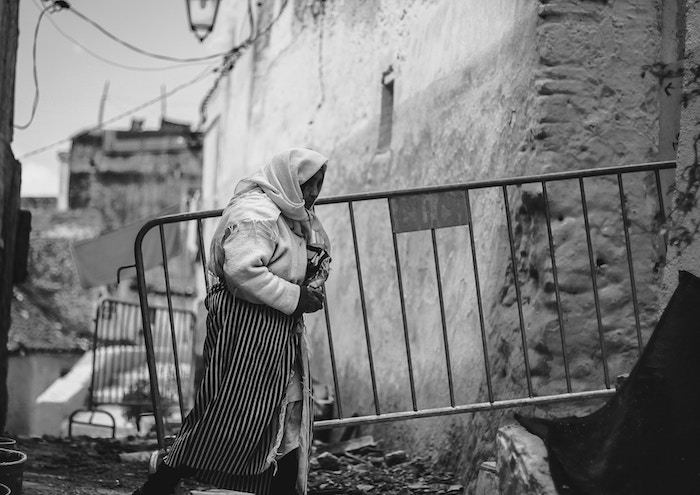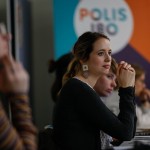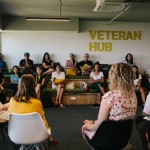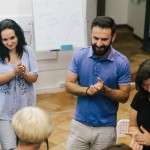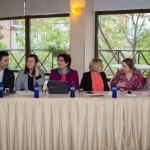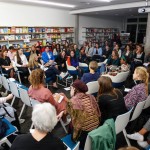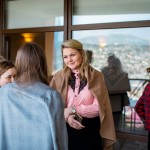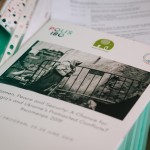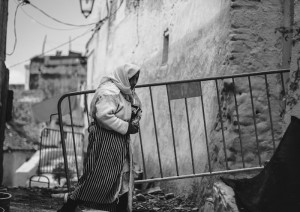
Women, Peace and Security: A Chance for Georgia’s and Ukraine’s Protracted Conflicts?
#womenps
Following our German-Ukrainian project in 2016 and our German-Ukrainian-Georgian project in 2018, Polis180, the Centre of Public Initiatives “Ideas for Change” (Kyiv) and the IDP Women Association “Consent” (Tbilisi) continue their work on the Women, Peace and Security Agenda in the context of the conflicts in Ukraine and Georgia. In 2019, we aim at connecting country-specific issues to the 20th anniversary of UN Security Council Resolution 1325 on Women, Peace and Security in 2020. Organizing two workshops for German, Georgian and Ukrainian young professionals in Tbilisi (5-10 May 2019) and Kyiv (23-28 June 2019) as well as a research-oriented conference in Berlin (September 2019), we want to increase awareness of the Women, Peace and Security agenda and analyze best practices.
Tens of thousands of people from Eastern European countries have been suffering from violent conflict since the end of the Cold War. The suffering of women and men during and after conflicts is different: women are more often deprived of access to housing, health and social services, and their access to labor markets is often more limited. In Georgia and Ukraine, women often face outright harassment or even sexual exploitation when crossing the administrative boundary line/contact line. At the same time, studies have shown that taking into account women’s views and experiences in conflict resolution – beyond acknowledging the special needs and conflict-related vulnerabilities of women – often leads to less militarized and more sustainable and peaceful outcomes.
In #womenps, Polis180, the Centre of Public Initiatives “Ideas for Change” and the IDP Women Association “Consent” scrutinize the roles of women in peace and security in Georgia and Ukraine, answering the following questions: What is the status of women’s rights and women’s participation in politics and society in Ukraine and Georgia? How do governmental and civil society actors, NGOs and mediators address issues of Women, Peace and Security? Which special challenges do internally displaced women face? (How) does the situation differ among Ukraine and Georgia and what can be learned from the respective other? What could Germany and the EU do to strengthen gender-sensitive perspectives on the Ukrainian and Georgian conflicts?
Any questions? Write us at womenps@polis180.org.
Project activities 2019
- Organizing two workshops for German, Georgian and Ukrainian young professionals in Tbilisi (5-10 May 2019) and Kyiv (23-28 June 2019)
- Organizing two online workshops on policy paper writing
- Organizing a research-oriented conference in Berlin (15-18 September 2019) for project participants from 2016, 2018 and 2019 as well as the interested public
- Publishing four Polis Briefs that deal with specific aspects of the Women, Peace and Security Agenda
- Polis Brief N°10. Dilek Gürsel: Germany as a Global Peacebuilder: Fostering Women, Peace and Security in the Turkish-Kurdish Peace Process
- Polis Brief N°11. Merle Huber: Implementation of the Women, Peace and Security Agenda in Germany: Toward Gender Security?
- Polis Brief N°12. Hanna Hrytsenko: Women in the Ukrainian Military: Achievements, Shortcomings, And Pacifist Feminist Perspectives
- Polis Brief N°13. Ana Lolua: Socio-Economic Empowerment of Conflict-Affected Women in Georgia: Challenges and Opportunities
Impressions from Tbilisi, Kyiv and Berlin
Interested in previous related projects?
Read more about “Beyond the Protocol: Women and International Politics in Germany and Ukraine” (2016) and “Women, Peace and Security: A Chance for Ukraine’s and Georgia’s Protracted Conflicts” (2018). #womenps 2019 and its predecessors are implemented by Polis‘ program area Gender and International Politics.
Partner organizations
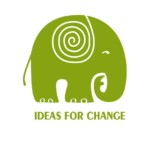
The Centre of Public Initiatives – Ideas for Change (IfC) was founded in Kyiv in November 2015 and started its project work in January 2017. IfC sees itself as a „Think & Act & Change Tank“ and devotes its work to the development of new ideas and the transformation of Ukrainian society. The activities of IfC include conflict management and regulation, foreign policy, support for the reform process and equality. The IfC is in charge of implementing the project „Women’s Initiatives for Peace in Donbas(s)“, which builds links between representatives of the various sides of the conflict.

Tbilisi-based IDP Women Association “Consent” works towards the achievement of a democratic and peaceful society with equal opportunities for IDPs, with a particular emphasis on women. It was established in 1996 by women from the IDP community. It supports the improvement of economic conditions, health and education of IDPs and other minority groups with the special emphasis on women and youth. Since 2010, the Association, in partnership with CARE International in the Caucasus and four other NGOs from five regions of Georgia (including the two breakaway regions), has implemented the project “Strengthening Women’s Participation in Peacebuilding in the South Caucasus”.
Project Team

Miriam Mona Müller (project lead, Polis180) works for UN Women National Committee Germany and is specialized in inter-governmental processes of the Women, Peace and Security Agenda within the EU and the UN. In particular, she works on gender-based violence during armed conflicts as well as on disarmament processes. In 2018 she was a participant of the #womenps project’s second round and has contributed to the project’s report.

Maximiliane Linde (student assistant, Polis180) is currently obtaining a bachelor’s degree in Political Science and Religious Studies at University of Münster. She completed an exchange semester at the University of Warsaw and gained work experience at the Heinrich-Böll Foundation in Tel Aviv and at the Federal Foreign Office in Berlin.
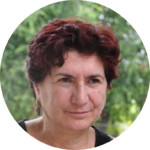
Julia Kharashvili is the Chairperson of the IDP Women Association “Consent”. After the war in Abkhazia (1992-93) and displacement, together with colleagues she created the NGO in order to support internally displaced women. Between 2008- 2010 she served as the Deputy Director of the International Relations department in the Georgian Ministry of Refugees and Accommodation (2008-2010). Julia is a member of the coordination group on the implementation of Georgia’s National Action Plan on Women, Peace and Security. Since 2014 she is a member of the High Level Advisory Group for the Global Study on the impact of the UN Security Council Resolution 1325.

Ivane Kharashvili graduated from Georgian Technical University where he earned a Bachelor’s Degree in Telecommunication Engineering. In 2010 he obtained a Master’s Degree in Administrative Management at “KROK” University, Kyiv. Ivane worked for the International Committee of Red Cross, the Ministry of Refugees and Accommodation of Georgia, UNHCR, the Norwegian Refugee Council and DVV International. Since 2006 he has been working for the IDP Women Association “Consent”. Since 2016 he is the founder and director of LLC Pepela Design Laboratory. In 2014 he participated in a training course on the UN Security Council Resolution 1325 on Women, Peace and Security.
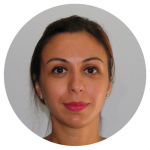
Salome Jojua is Head of the Legal Department at Rompetrol Georgia LLC and a legal consultant for different companies. She specializes in corporate law, mediation, negotiations, competition and investment law. As a PhD student she researches competition-restricting action as an investment risk for transnational corporations. Currently, she is working on an article for Tbilisi State University’s “Journal of Law” on the role of women in mediation.
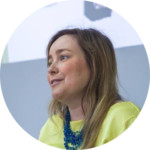
Olena Zakharova founded the Centre of Public Initiatives – Ideas for Change in 2017 after having worked as the Director of ICPS’s Foreign Policy Department since August 2013. Olena already partnered with Polis for the 2016 project „Beyond the Protocol – Women and International Politics in Germany and Ukraine“. Between 2003-2013, she worked at the Political and Security Department of the Ministry of Foreign Affairs of Ukraine and at the Department for Association and European Integration of the Secretariat of the Cabinet of Ministers of Ukraine. Between 2007-2011, she was the First Secretary of the Embassy of Ukraine in Canada (Ottawa).

Volodymyr Dubel works as an Event Manager at the Centre of Public Initiatives – Ideas for Change. He is an active participant of charitable projects in Eastern Ukraine. Volodymyr has experience in managing organizations, planning and conducting events, managing large projects and coordinating team work.
Project term
1 February – 31 December 2019
